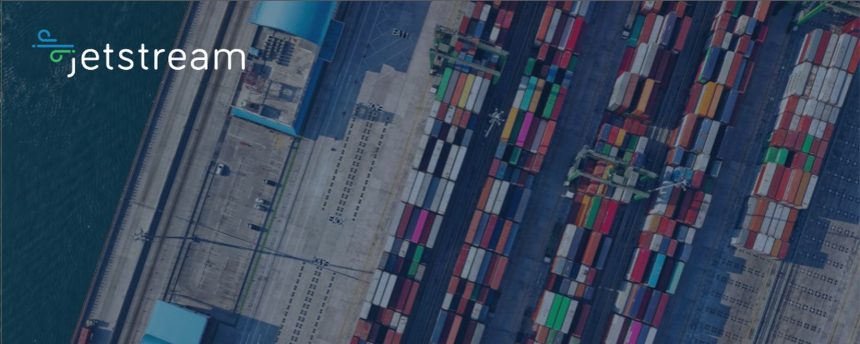Jetstream, a Ghanaian-based company just closed a $3 million seed round to address the problems of African businesses trading goods with distant overseas partners as opposed to Africa’s intracontinental trade corridors.
Local and international investors who participated in the round include Alitheia IDF, Golden Palm Investments, 4DX Ventures, Lightspeed Venture Partners, Asia Pacific Land, Breyer Labs, and MSA Capital.
The startup was founded by Miishe Addy and Solomon Torgbor in 2018. The founders started Jetstream to enable African businesses to see and control their own cross-border supply chains. It aggregates private sector logistics providers at African ports and borders, and brings them online.
Jetstream started operations in Ghana in March 2019 with a Less Than Container Load (LCL) aggregation service. The service allowed agricultural exporters to group their shipments into shared sea freight containers. Then in November of that year, Jetstream added trade finance for customers who found it difficult to fill large purchase orders.
Today, Jetstream is white labeling the systems built internally to manage shipments and financing for customers.
“We are different from a more siloed freight management system because we are leveraging financing to integrate the customs brokers, freight forwarders, shipping lines, airlines, and container terminals all onto the Jetstream platform so that shipments can be managed and tracked every step of the way. We are bringing many of the local providers online for the first time,” Addy said of the changes Jetstream has had to make along the way.
Jetstream’s business model is straightforward. It charges for the freight, clearance, and financial services offered. For freight, it charges a per-container or per-kilogram fee. For customs clearance, it charges a flat fee that varies depending on the tax category and location of the shipment. And for financing and insurance services, it charges a commission on the value of the goods being shipped.
During the pandemic, inefficiencies and a lack of coordination between providers around the ports were made more evident and created stronger growth for Jetstream as its logistics service revenue significantly grew 512% from March 2020 to March 2021. Addy believes that the pandemic further intensified Jetstream’s vision to bring cross-border trade corridors online and drive toward an inflection point in the speed and growth of commerce on the continent.
“We see a future where trade running on Jetstream’s digital rails has a powerful competitive edge on logistics. Jetstream is to cross-border logistics what Flutterwave is to fintech in Africa,” she continued.
In addition to Port Tema, Jetstream counts an unnamed Asia-based global shipping line as a major early adopter and customer of its technology. This has seen Jetstream’s business generate seven-figure revenue and Addy claims the startup grows more than 100% year on year.
That aside, Jetstream also has operations in Nigeria with agents present in South Africa, China, the U.S., the U.K., and Europe. This talent placement is one of Jetstream’s moves geared towards 2028 when the CEO says the company hopes to have a presence at ports and borders in Africa comprising 80% of the continent’s total global trade.
Original Reporting: Techcrunch










